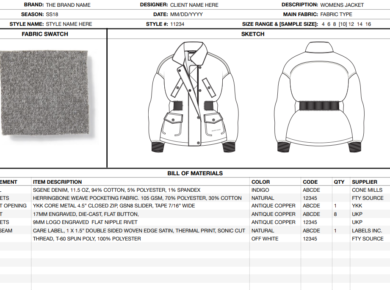From Siri to ChatGPT, artificial intelligence (AI), including its subset machine learning, is revolutionising every industry and fashion retail is no exception. AI, specifically machine learning, involves the use of algorithms that can learn from and make decisions or predictions based on data. With its ability to analyse vast amounts of data and provide actionable insights, AI is a powerful tool for fashion retailers, particularly in the area of sourcing. In this next iteration of technology, AI will disrupt how we know fashion sourcing today, the task now is to be ahead of the curve.
AI and Fashion Sourcing: A Match Made in Tech Heaven
Traditionally, the fashion sourcing process has been largely manual, involving numerous time-consuming tasks such as searching for suppliers, negotiating prices, checking quality, and managing logistics. However, AI is changing the game, automating these tasks and making the sourcing process more efficient and effective.
One key opportunity provided by AI is predictive analytics. By analysing historical data and current trends, AI can forecast future fashion trends, enabling retailers to source products that are likely to be popular. Knowing your market’s trends can lead to less unsold stock, lower storage costs, and higher profits.
AI can also optimize supplier selection. Using machine learning algorithms, it can analyze factors such as price, quality, reliability, and sustainability credentials to suggest the best suppliers. This helps retailers to make more informed decisions and build more robust and resilient supply chains.
Furthermore, AI can assist in risk management. By monitoring various data sources, it can predict potential disruptions in the supply chain, such as delays due to bad weather or political instability. This allows retailers to take proactive measures and mitigate the impact of such disruptions.
Learn how you can access intelligence like this, and more, with Sourcing Playground’s machine learning network.
The Challenges of Implementing AI in Fashion Sourcing
Despite the many benefits, implementing AI in fashion sourcing is not without its challenges. One of the main hurdles is data quality. For AI to work effectively, it needs large volumes of accurate and high-quality data. However, many fashion retailers do not have the necessary data infrastructure in place and may struggle to collect and manage data in a way that is conducive to AI.
Another challenge is the need for more understanding and expertise in AI. While AI technology has become more accessible, it still requires a certain level of technical knowledge to implement and use effectively. This can be a barrier for many fashion retailers, particularly smaller ones that do not have the resources to hire AI experts.
Furthermore, there are ethical considerations associated with the use of AI, such as concerns about data privacy and job displacement due to automation and streamlining processes. Retailers need to address these issues responsibly to ensure the ethical use of AI.
For these reasons it is imperative to partner with an external AI platform you can trust. A good AI, or machine learning, intelligence platform should be transparent with where it receives its data and if it is partnering with any of its sources. It should also have an engaged and supportive onboarding process and continued customer relations.
AI presents an exciting opportunity for fashion retailers to streamline their sourcing process and make more informed decisions. However, it also brings challenges that need to be carefully managed. To successfully leverage AI in fashion sourcing, retailers need to invest in a trustworthy AI data intelligence platform for their partnership. By doing so, they can harness the power of AI to stay competitive in the ever-evolving fashion retail landscape.
Explore Sourcing Playground’s AI-backed data intelligence platform and see how you can enhance your sourcing strategy today.






